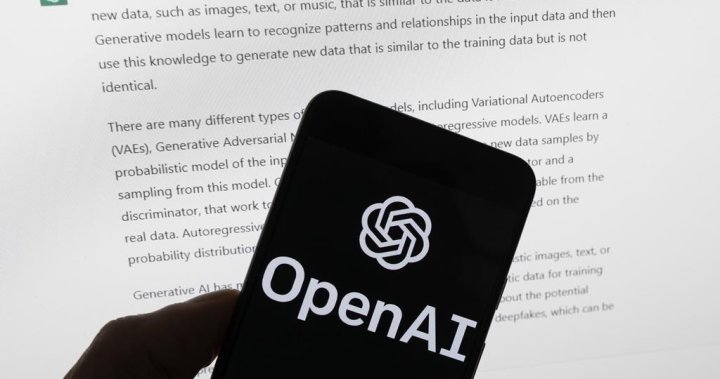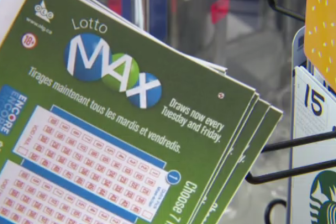Experts warn of more sophisticated scams as AI gains popularity | Globalnews.ca
The Better Business Bureau is warning of more sophisticated scams as a result of artificial intelligence, or AI.
As the technology rapidly evolves, officials warn it’s something we need to keep a close eye on and regulate to ensure it doesn’t get out of control.
ChatGPT, an AI chatbot, has been gaining popularity in recent months. People can give the chatbot a prompt or ask it questions, and within seconds it will have an answer. It can also generate images.
The BBB has previously warned that ChatGPT can be used to create phishing scams with wording that can mimic that of legitimate organizations, as well as impersonation and romance scams.
As well, the CEO of OpenAI, the startup behind ChatGPT, recently told an American Senate panel that the use of artificial intelligence to interfere with election integrity is a “significant area of concern,” and AI needs further regulation.

While the evolution of artificial intelligence has some positive potential, the Better Business Bureau is warning that people be extra cautious while on the internet, or even answering their phone.
“I think it’s quite concerning, and I think it’s important to realize that what’s accessible to the general public is just kind of the tip of the iceberg,” said Kristin Matthews, spokesperson for the Atlantic chapter of the BBB.
“We don’t really know what scammers and hackers have been able to access in terms of AI and how they’ve been able to use that.”
She said the grandparent scam — when someone pretends to be a grandchild calling for help — can be even more sophisticated with voice manipulation.
Recently in Arizona, there was a case where scammers tried to convince a mother they kidnapped her daughter for ransom, using an AI to copy her voice. The daughter turned out to be safe.
“They’re taking voice clips from people’s social media videos, for example, and trying to pretend to be them to scam people out of money,” Matthews said.
She also said the bureau is seeing fake AI-generated photos using celebrities to endorse certain products.

Cybersecurity expert David Shipley likened the rise in AI to when the internet was evolving.
“We are just at the same point we were in 1990 when we talk about AI today, and we’re just skimming the surface of what could be there,” he said. “It would behoove us to actually have a good handle on it before we write laws … but we do need laws that actually regulate.”
The Nova Scotia government announced a new department on Wednesday, Cybersecurity and Digital Solutions. Artificial intelligence wasn’t the reason for the new department, but it’s certainly on the radar.
“As with any technology, there are benefits, but again, because we are government, I think it’s important for us to not necessarily be on the bleeding edge of things,” said Natasha Clarke, the deputy minister for the new department.
“We need to be cautious and mindful of our approach.”
The BBB says people can look out for fake AI images by zooming in to find any giveaways or inconsistencies. They can also watch for shadows, blurs or flickers in videos and double checking the source of their information.
Other AI identification tips can be found on the BBB website.
Matthews said education is key to ensuring safety as technology evolves.
“AI is just exploding, it’s changing every day,” she said. “So these tips could change in the next week, change in the next two weeks.”
— with files from Alex Cooke
© 2023 Global News, a division of Corus Entertainment Inc.
For all the latest Technology News Click Here




